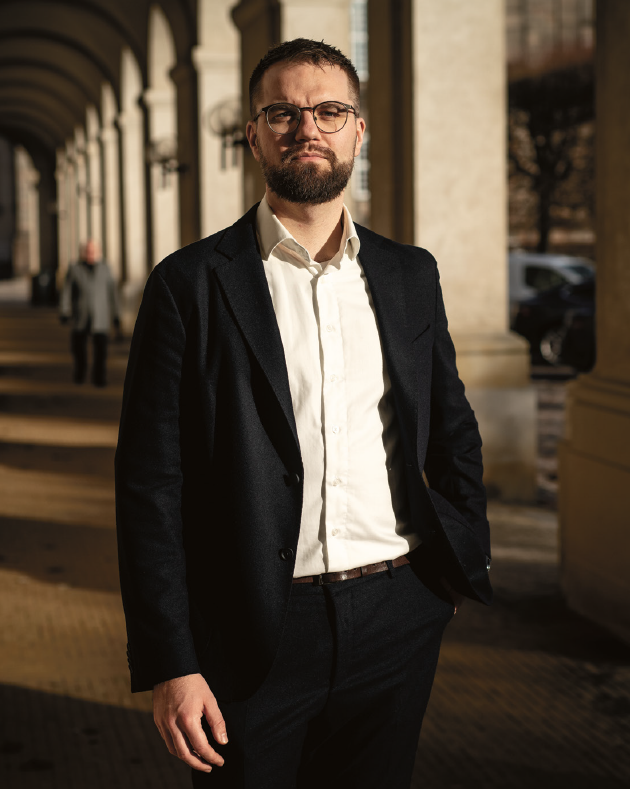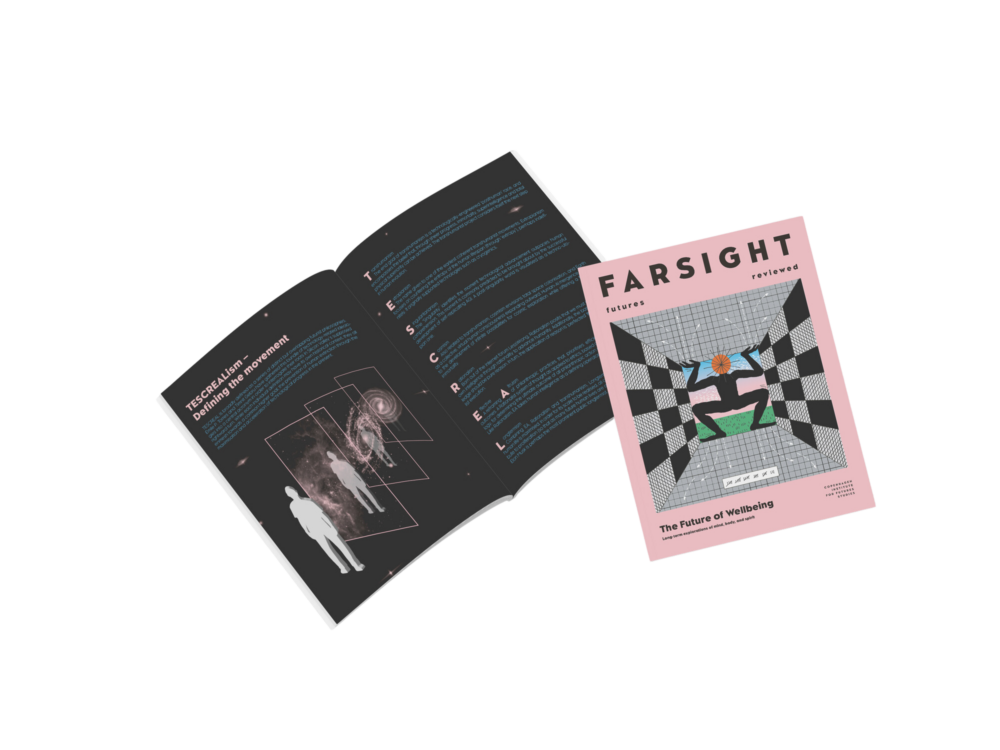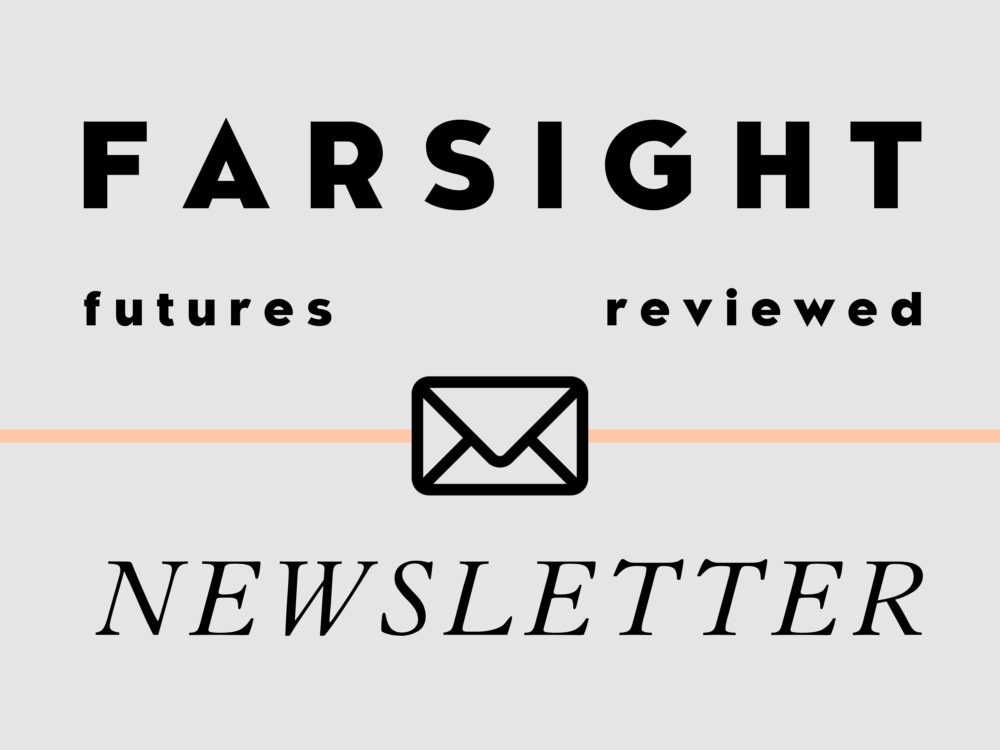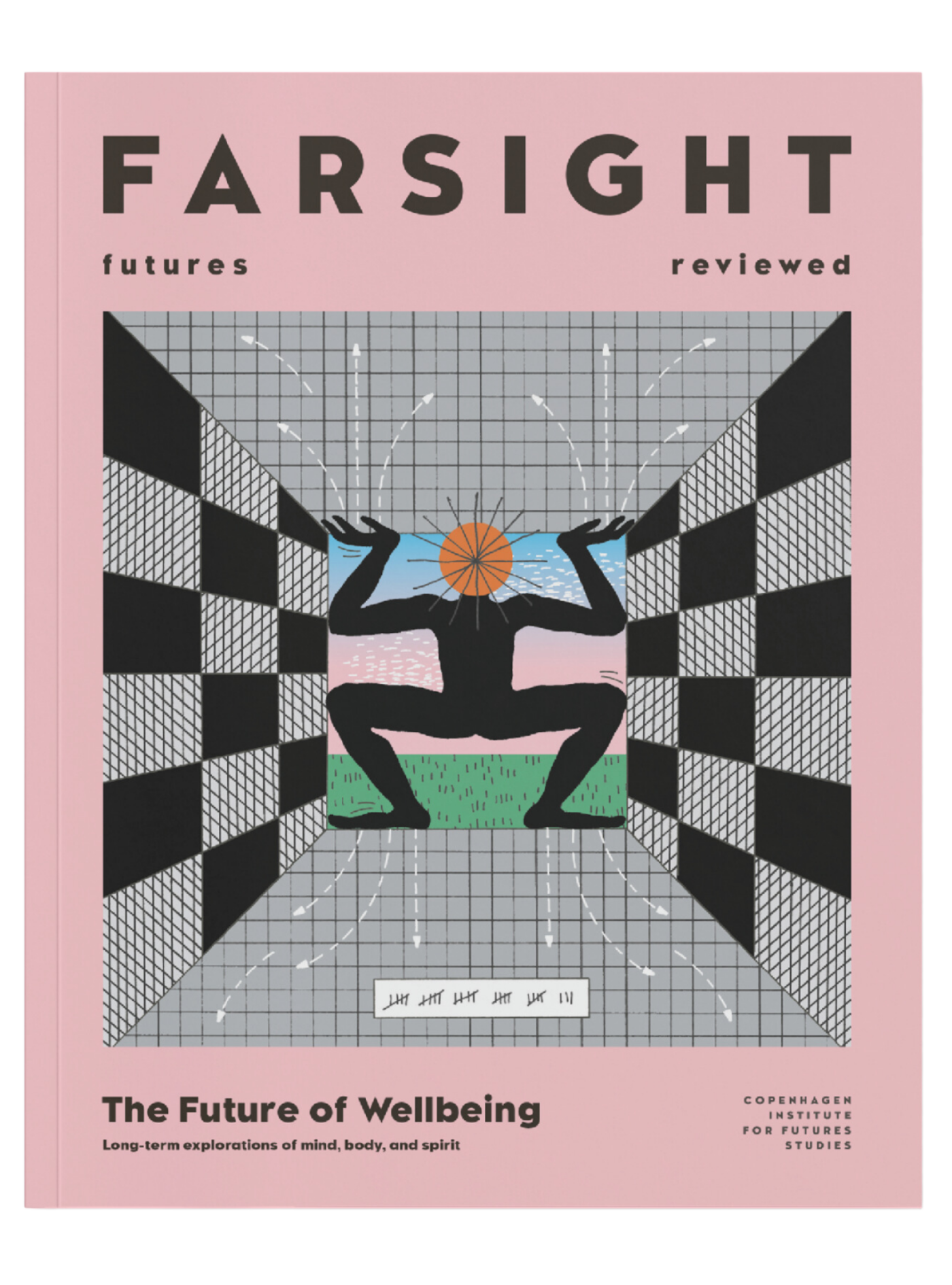
In turn, we use cookies to measure and obtain statistical data about the navigation of the users. You can configure and accept the use of the cookies, and modify your consent options, at any time.

Q&A with Mads Falkenfleth Jensen, Founder and Director of the Wellbeing Economy Lab.

Despite economics often purporting to optimise our lives, no one seems to be particularly joyous upon hearing an economist speak. Mads Falkenfleth Jensen is hoping to change that. In March 2024, he and his team launched the Wellbeing Economy Lab, an independent, science-based think tank dedicated to the co-creation of a Wellbeing Economy that aims to reach across the political spectrum to develop evidence-based solutions to society’s long-term social and ecological challenges.
What is the purpose of WELA?
At its core, the aim of WELA is to create a transmission mechanism between the volumes of new research coming out of academia and the political decision- makers in Danish society that are, for the most part, busy with simply ‘keeping up’ with changes at hand. By acting as an innovation hub and knowledge centre for what’s going on within new economic thinking, we can figure out what the research actually says and what our options are for systemic economic change.
Let’s wind back a bit – when you talk about a ’wellbeing economy’ what exactly do you mean?
Sure. A wellbeing economy is underpinned by the idea that our economy is not an end in itself – it’s a means to an end. Over the past several decades, there has been a political consensus across the spectrum that what constitutes this ‘end’ is something along the lines of that “If the whole pie grows, then there is more for everyone.”

Broaden your horizons with a Futures Membership. Stay updated on key trends and developments through receiving quarterly issues of FARSIGHT, live Futures Seminars with futurists, training, and discounts on our courses.
become a futures memberThe problem is that we are transgressing our planetary boundaries by thinking in this way. What we at WELA say, is that we want an economic system that puts wellbeing at the centre of the economy. One which facilitates good lives for everyone – both current and future generations – and within planetary boundaries. It’s not really a partisan issue or one with a political agenda. It’s simply the most sensible thing to do, I think.
Wellbeing is a subjective and culturally dependent term. How are we supposed to understand ‘wellbeing’ in the context of WELA trying to systemically reimagine the economy?
Well, our aim is to say that everyone needs to have their fundamental needs and rights met, which includes e.g. a sense of meaning and purpose. What we’re trying to do shouldn’t be ambitious, but unfortunately, in the world we’re living in, it is.
The perspectives we’re bringing in aren’t so much new as they are very marginalised. We’re now trying to bring those perspectives into the mainstream of how we do policy.
Is there a particular reason WELA is being established now in Denmark – a country otherwise known for its leading role in things like renewable energy and social democracy? Is it a particularly opportune time in the Danish political landscape, or is it simply because many of our planetary boundaries are currently on track towards being radically overshot, making action necessary as soon as possible?
I think the time is ripe for something like WELA – there’s a public demand for figuring out what we’re going to do to solve the crises of our time. A lot of people are waking up to the fact that we cannot continue down the path we have been for the past decades. We’ve seen so many records shattered in the past year: on the 17th of November last year, Earth’s surface temperature exceeded 2°C above the pre-industrial average, and the average temperature has been above 1.5°C from the last year to date.
How should we respond to this – are the necessary changes up to individuals, or should they be more systemic? Do I use a paper straw while someone else is polluting a lot more than me? And if I choose a paper straw rather than a plastic one, what ensures that others will even follow suit? Furthermore, there’s so much information to process that it’s next to impossible to navigate it for ordinary people. Add to that how we’re not just talking about climate change when we mention planetary boundaries – it’s also biodiversity loss, and pollution from plastics and petrochemicals etc. There are so many different interconnected crises that we can’t all be professors and ‘know the science.’
Seems like a lot of work – to overcome the creeping apathy many are starting to feel towards being environmentally conscious in every decision they make, and still not feeling completely certain that what they are doing is the right choice. Surely, even on a Danish level, this is a job too large for one think-tank.
Clearly. We’re not trying to do this work alone. Our vision is one of co-creation: we have been working with multiple stakeholders in both the public and private sector, as well as civic society, in trying to build a network surrounding the transition towards a wellbeing economy. We are under no illusion that we can make all the necessary changes to our system on our own. We are lucky to be a part of the Danish hub of the Wellbeing Economy Alliance – a global initiative bridging organisations and individuals interested in working towards the wellbeing economy.
I understand how the present-day obsession with growth fuels a fire here, but could you elaborate a bit more on the core of this disconnect between how people think the economic system is built and how it actually works?
I think economists use so much jargon, that most people don’t fully understand what they mean, and then become disengaged. The economic models that are used for making predictions become a ‘black box’. Similar to a TV, it works when we push a button on our remote control, even though we don’t understand exactly how. In the same way, the economic models provide numbers about the functioning of the economy, that people simply don’t understand. I think that can lead to a democratic deficit and ultimately lead to a feeling of being disenfranchised.
Why? Well, I think there exists a dynamic where our policymakers have an incentive to defer how we prioritise to economists. If an economic model says that a certain policy proposal will result in a certain level of growth, then policymakers can defend its implementation by saying that “It’s what the economists are saying.” And thus, not take full responsibility, because the choice was made by “the economy”.

Explore the world of tomorrow with handpicked articles by signing up to our monthly newsletter.
sign up hereInstead of closing down these discussions, I think we would be better off if we opened them up much more. And I think that’s one of the things the wellbeing economy helps doing by saying, “Hold on, the economy is actually man-made. It’s designed, which means we can also change it by design.”
So, the idea is that by democratising the political-economic system, we shift the emphasis from, say, universal growth, to how the economy can improve our individual, collective, and global wellbeing?
Somewhat. Most economists would agree that GDP is not a good measurement of wellbeing or societal progress. Yet it’s still institutionalised in treaties, laws and regulations that we have today. We need some parts of the economy to grow, some parts to stay where they are, and some to shrink because of the damage they cause, be it to the environment or people.
How do you hope the state of the economic system will look by 2050, both in Denmark and abroad? Are there any things you think we will collectively wish we had acted on in hindsight?
I hope we will have transitioned into a wellbeing economy. Living in as stable and prosperous of a country as Denmark, I have a sense that if it’s not possible for us to rapidly transition into a wellbeing economy, then it would be difficult for me to have hope for the rest of the world. With that wealth and stability comes a huge responsibility. The specifics of figuring out what the science tells us about how we could achieve that eventual state is what WELA is tasked with answering.
Are there any of your ideas that may be considered radical today, but in 25-years’ time will be completely normalised, assuming we manage the transition to a wellbeing economy?
I think one such idea concerns how we build policies and make decisions in the political sphere. I think there is a potential for us to make more impactful decisions, but at a slower pace and long-term view.
This not only necessitates putting pressure on politicians to recognise the power and influence they have, but also requires an emphasis on wider society to contribute to collaborations around policy. In economic terms, we are all taught that if we focus on how to maximise our own so-called utility (i.e. ‘happiness’), then we will eventually reach a societal equilibrium where nobody would have an incentive to change action.
Almost every religion has a golden rule at its heart: don’t do to others what you wouldn’t want done to yourself. It’s almost like we were born with this moral notion that we don’t like seeing other people suffer. It exists in Islam, Christianity, Buddhism, Hinduism, and Taoism. It would change our whole society in such a radical way if we simply started living by this rule. In that way, I think we could improve our political decision making by engaging with this principle, through more deliberate democracy and citizens’ assemblies, for example. Such assemblies push us to discuss the best choice of action, and usually leads to more thought-through outcomes than when individuals simply decide in e.g. a survey. Another more concrete idea, would be to get a Commissioner for Future Generations. We are proud to have Sophie Howe, the first commissioner for future generations of Wales, in our advisory board to lend her experience and expertise towards realising that idea.
Well, we can certainly stand behind that.

Stay up-to-date with the latest issue of FARSIGHT
Become a Futures Member